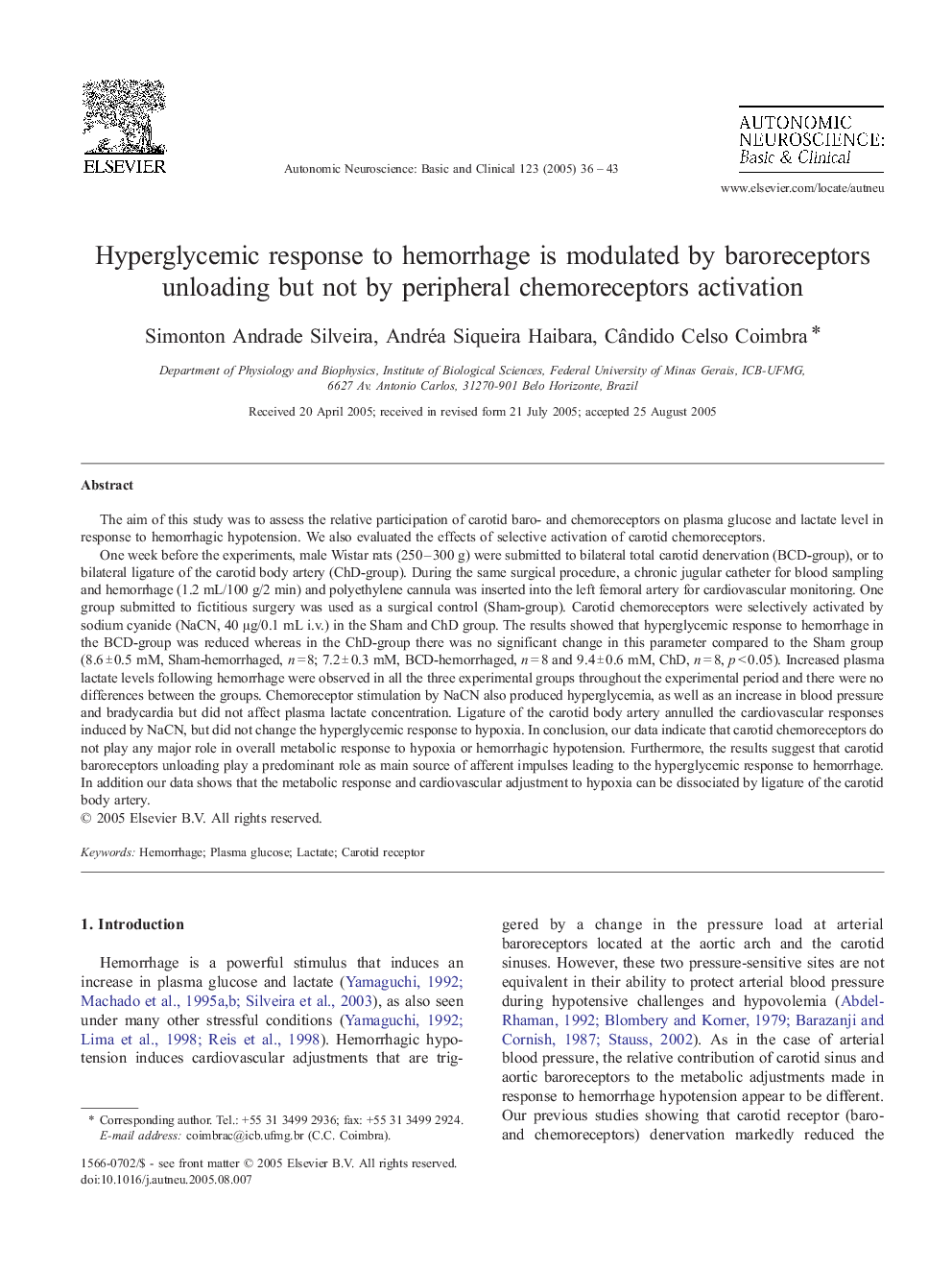| Article ID | Journal | Published Year | Pages | File Type |
|---|---|---|---|---|
| 9186503 | Autonomic Neuroscience | 2005 | 8 Pages |
Abstract
One week before the experiments, male Wistar rats (250-300 g) were submitted to bilateral total carotid denervation (BCD-group), or to bilateral ligature of the carotid body artery (ChD-group). During the same surgical procedure, a chronic jugular catheter for blood sampling and hemorrhage (1.2 mL/100 g/2 min) and polyethylene cannula was inserted into the left femoral artery for cardiovascular monitoring. One group submitted to fictitious surgery was used as a surgical control (Sham-group). Carotid chemoreceptors were selectively activated by sodium cyanide (NaCN, 40 μg/0.1 mL i.v.) in the Sham and ChD group. The results showed that hyperglycemic response to hemorrhage in the BCD-group was reduced whereas in the ChD-group there was no significant change in this parameter compared to the Sham group (8.6 ± 0.5 mM, Sham-hemorrhaged, n = 8; 7.2 ± 0.3 mM, BCD-hemorrhaged, n = 8 and 9.4 ± 0.6 mM, ChD, n = 8, p < 0.05). Increased plasma lactate levels following hemorrhage were observed in all the three experimental groups throughout the experimental period and there were no differences between the groups. Chemoreceptor stimulation by NaCN also produced hyperglycemia, as well as an increase in blood pressure and bradycardia but did not affect plasma lactate concentration. Ligature of the carotid body artery annulled the cardiovascular responses induced by NaCN, but did not change the hyperglycemic response to hypoxia. In conclusion, our data indicate that carotid chemoreceptors do not play any major role in overall metabolic response to hypoxia or hemorrhagic hypotension. Furthermore, the results suggest that carotid baroreceptors unloading play a predominant role as main source of afferent impulses leading to the hyperglycemic response to hemorrhage. In addition our data shows that the metabolic response and cardiovascular adjustment to hypoxia can be dissociated by ligature of the carotid body artery.
Keywords
Related Topics
Life Sciences
Neuroscience
Cellular and Molecular Neuroscience
Authors
Simonton Andrade Silveira, Andréa Siqueira Haibara, Cândido Celso Coimbra,
